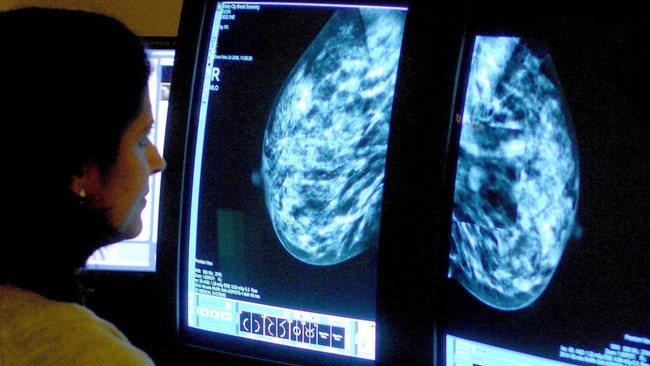Breast cancer drug breakthrough for women with ‘Jolie gene’
Scientists hail immunotherapy treatment which may provide alternative to mastectomies.

Healthy women who carry cancer-causing genes could be given drugs that are normally used to treat an advanced form of the disease as a preventive measure, a study has suggested.
About one in 400 people carry a BRCA gene mutation that puts them at high risk of developing breast and ovarian cancer. Patients with the mutation can have a preventive mastectomy, as Hollywood actor Angelina Jolie did in 2013.
The new study from the University of Cambridge found that immunotherapy drugs could also be used in future as an alternative to surgery. In a breakthrough, scientists discovered that immune cells in the breast tissue of healthy women carrying faulty BRCA1 or BRCA2 genes showed signs of a malfunction known as “exhaustion”. This is when the immune cells cannot clear out damaged cells, which can then develop into cancer.
Normally, these “exhausted” cells are found only in advanced tumours, and patients can be given immunotherapy drugs to stimulate them to kill and destroy cancerous cells. These drugs are usually given to patients with late-stage breast cancer, but the new findings suggest they could also be given to healthy women with the BRCA mutation as a preventive measure.

The senior author of the study, Professor Walid Khaled, of the University of Cambridge and Wellcome-MRC Cambridge Stem Cell Institute, said: “Our results suggest that in carriers of BRCA mutations the immune system is failing to kill off damaged breast cells – which in turn seem to be working to keep these immune cells at bay.
“We’re very excited about this discovery, because it opens up potential for a preventive treatment other than surgery for carriers of BRCA breast cancer gene mutations.”
He added: “Drugs already exist that can overcome this block in immune cell function but so far they’ve only been approved for late-stage disease. No one has really considered using them in a preventive way before.”
The research team will now test the drugs on mice, and could start a pilot clinical trial in women with BRCA gene mutations if that is successful.
There are about 56,000 breast cancer cases each year in the UK, and 11,500 deaths. BRCA mutations are the underlying cause of up to 10 per cent of cases.
Up to 85 per cent of women with a BRCA mutation will get breast cancer in their lifetime, according to the NHS. Women can be offered a genetic test on the NHS to check for a BRCA gene variant if they have a strong family history of breast cancer. They can then take preventive steps to lower their risk of developing the disease.
The new study, in the peer-reviewed journal Nature Genetics, used samples of breast cancer tissue from 55 women, which allowed researchers to catalogue more than 800,000 cells – including all the different types of breast cell. Dr Simon Vincent, director of research at the charity Breast Cancer Now, said: “The best weapon we could have against breast cancer is the ability to stop it occurring in the first place.
“While further research is needed and clinical trials in humans are yet to take place, these findings could be a significant step forward in our care and treatment of people whose genes mean they have an increased risk of developing breast cancer.”
The Times






To join the conversation, please log in. Don't have an account? Register
Join the conversation, you are commenting as Logout